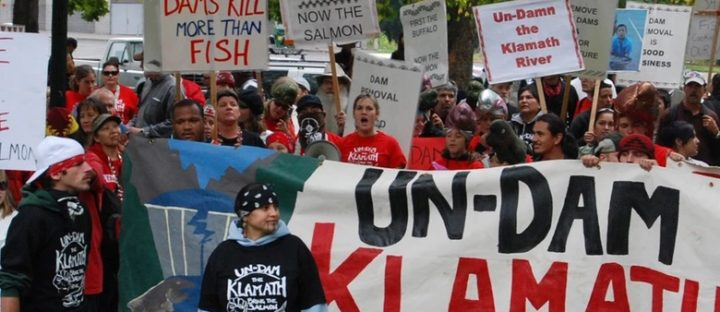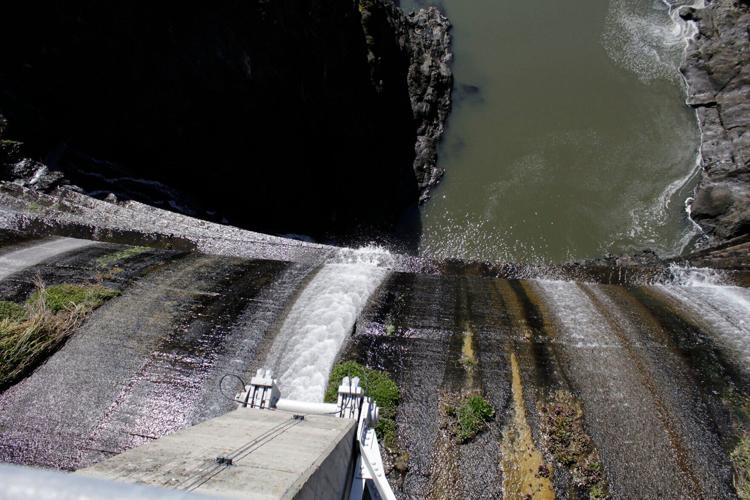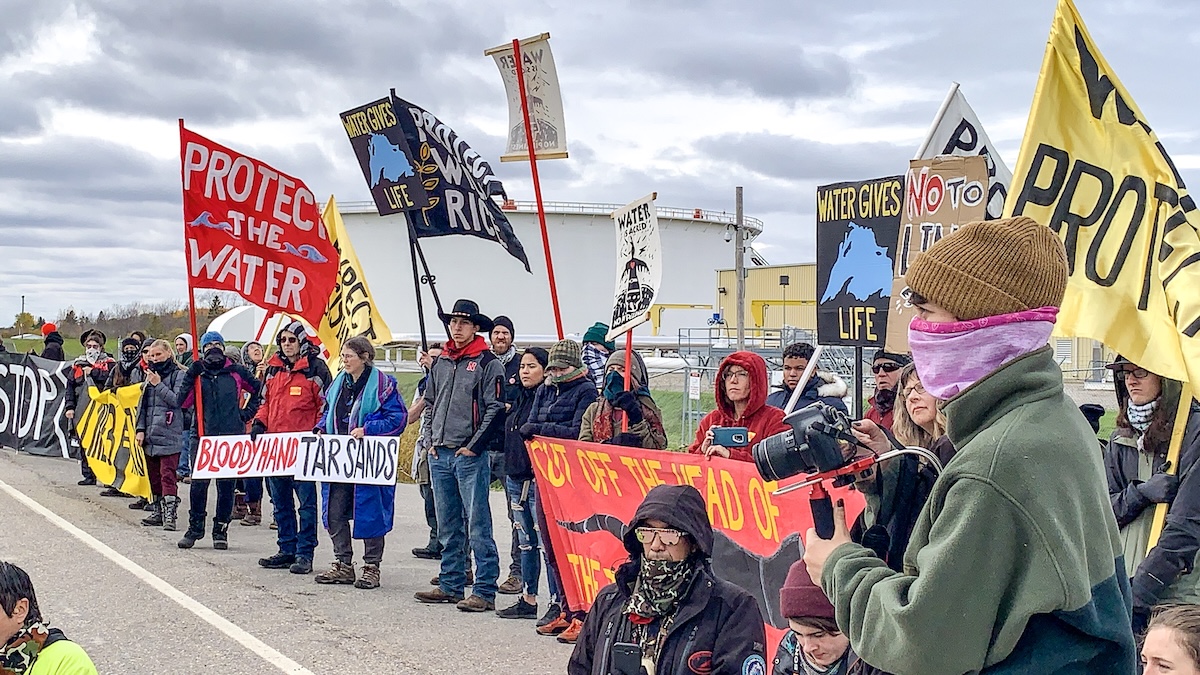Today at Peace House, we give pause to acknowledge an incredible victory for local Indigenous communities and salmon, dependent on a healthy Klamath River for their survival. Just after 7:00 a.m. yesterday morning, the 20 year effort to remove dams on the Klamath River overcame its final hurdle to becoming a reality. The dams are coming down!
After decades of protests, corporate campaigning, intense settlement meetings, petitions and more protests, members of the Yurok, Karuk and Hoopa tribes could be seen gathering with allies on a river bar and in Tribal offices, awaiting the Federal Energy Regulatory Commission (FERC) vote early Thursday morning. The regulators unanimously approved the transfer of ownership – and have put in motion the largest dam removal project in US history.
“The Klamath salmon are coming home,” Yurok Chairman Joseph James said after the vote. “The people have earned this victory and with it, we carry on our sacred duty to the fish that have sustained our people since the beginning of time.”

Grassroots efforts stemming from the shock and dismay of a massive fish kill along the banks of the Lower Klamath in 2002 swelled into a momentous movement that finally achieved its goal – to ‘UnDam the Klamath River, Bring the Salmon Home.’ Dam removal is a critical step to removing obstacles for returning salmon, and the removal of standing water that heats up into dangerous algeal blooms that can harm fish.
The multi–pronged, strategic campaign led by Indigenous communities, scientists, fishermen, and some conservation organizations was not a simple or easy task. But the common value of river and fishery health allowed unconventional allies to find peace in agreeing to a settlement that would work to remove the most harmful dams and withstand legal challenges from pro-dam irrigators in the Upper Klamath Basin. The dam removal will be the largest in US if not world history, and will begin in 2023.
To learn about the process, and hear from many voices on the topic, please check out the Humboldt coast’s coverage in the Times Standard and Lost Coast Outpost. There are articles also that have reached millions, including this AP Wire Story, this Los Angeles Times piece, and The Guardian’s coverage. You can also learn more on OPB and NPR, or check the Klamath Falls Herald & News articles to hear how Klamath Irrigators feel about the issue.
Editor’s Note: For much of the past 20 years, I engaged in the decolonizing struggle to remove Klamath dams with members of the Karuk, Yurok, Hoopa, Klamath, Modoc, and Yahooskin Tribes and their many allies. Whether at protests, in meetings, or more regularly helping to support logistics, I have been continually amazed at the courage and effectiveness of their collective work. The historic, David vs. Goliath campaign took Indigenous leaders as far away as Scotland and on several occasions in caravans to Nebraska, where individuals offered emotional testimony about the value of salmon to thousands of unknowing shareholders.
Perhaps the most courageous actions to build consensus for dam removal came in the form of cultural demonstrations in unconventional locations, including a traditional salmon bake at the potato festival in Klamath Falls, where a less-than-welcoming crowd became supportive after pairing delicious roasted salmon with upper basin potatoes. Nothing can bring back the tens of thousands if not millions of fish lost, or cultures in peril after horrific actions by settlers and the US government, from the headwaters upriver all the way down to the mouth of the Klamath. But what’s hopeful today is that by un-damming and restoring the Klamath River’s health, future generations of Karuk, Yurok, Hoopa, Klamath, Modoc, Yahooskin, Shasta and others will benefit from this incredible achievement. As these communities, still vibrant after overcoming so much, can take one step closer to a draw down away from cultural genocide and toward generational healing.


